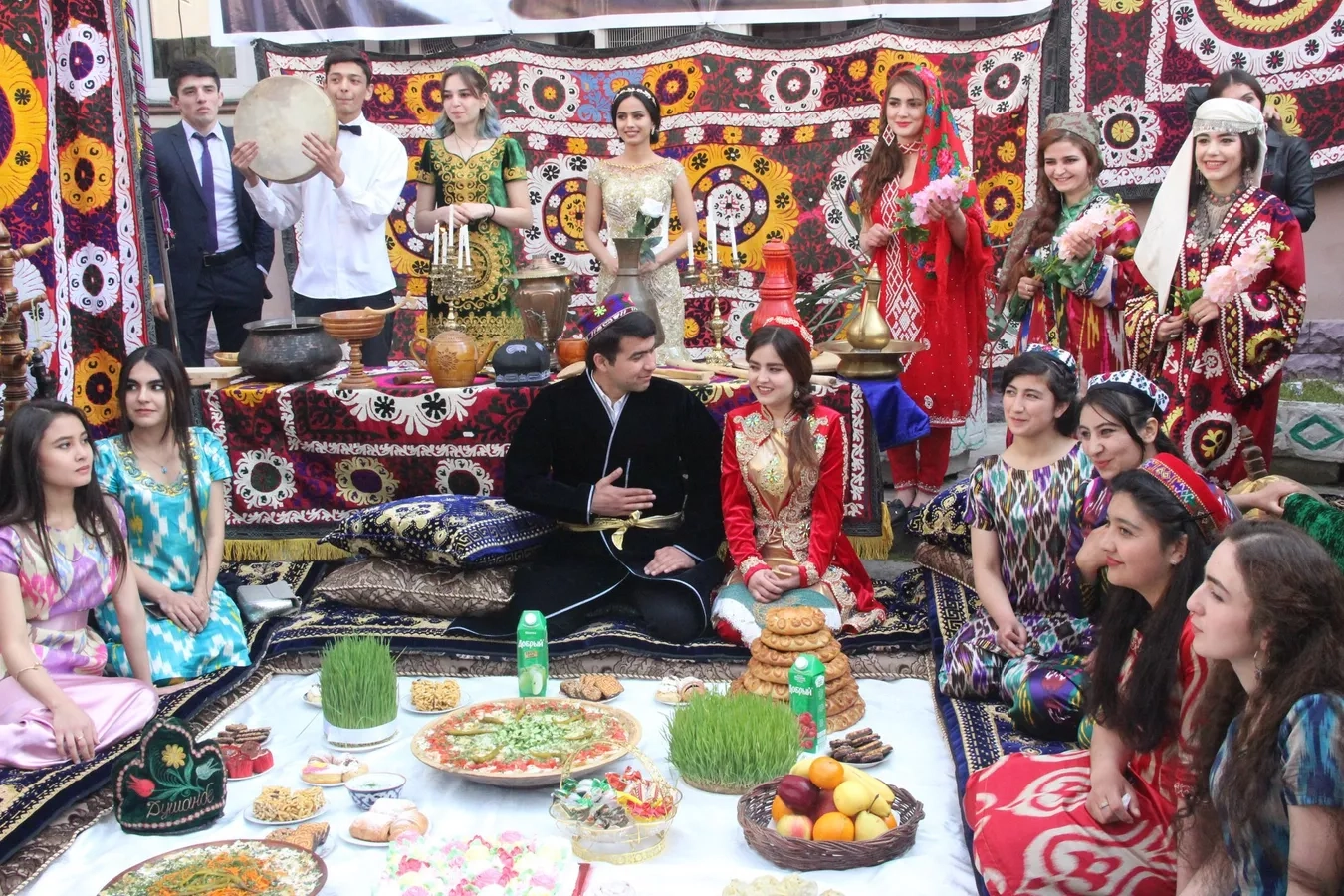National traditions and business etiquette in Tajikistan
 Table of contents
Table of contents
Modern Tajiks consider themselves the bearers and keepers of a multi-thousand-year tradition associated with the culture of the entire Persian-speaking area.

National character and culture
According to centuries-old traditions, the most important thing for Tajiks, regardless of their position in society, wealth and living conditions, is to remain human in any situation. In order to wake up in the morning with a pure soul, a Tajik must evaluate his day before going to bed; what was done right and what was wrong.
By nature, Tajiks are very patient and unpretentious people, brave, simple, daring and stubborn. They cherish their honor from a young age, go to their goals stubbornly, not dodging difficulties.
Tajiks have a natural love for trade, a desire for prosperity, for an energetic life. Life in the mountains taught these people not to be afraid of difficulties.
If you ask a Tajik who he is, then the answer, most likely, will not be a Tajik, but a Pamiri, Dushanbe, etc. depending on the person's place of residence.
When meeting a guest, Tajiks always get up from their seats as a sign of greeting. If a Tajik especially wants to emphasize his respect for a person, then along with a handshake, he will put his left hand to his heart. According to the Tajik tradition, a man and a woman should not be alone if they are not united by marriage.
Clothes are of great importance for Tajiks, they serve as an assessment of activity, position in society. A Tajik meets people by their clothes and often sees them off too. In everyday life, Tajiks can dress very modestly, not attaching importance to their outfit. If a Tajik has an important meeting or a festive event, he will definitely try to look decent.
Business culture
In their professional activities, Tajiks tend to show independence and perseverance. When a Tajik takes a break from business, he tends to be relaxed and carefree, which is often confused with laziness. When a Tajik is passionate about a new business, goes to his goal, he is energetic, mobile, persistent and fearless, stubborn and hardworking, often passionate. But for this, he must be clearly aware of his benefits from hard work. Otherwise, it will work slowly, without much tension, with frequent breaks.
Tajiks are easily fired up with a new idea, but they can also easily abandon its implementation halfway, carried away by a new one. In their professional activities, Tajiks love diversity and the periodic change of duties assigned to them.
Tajiks highly appreciate the professional skills of any person, and the phrase — "You are the master of your craft!" In general, Tajiks are very responsive to any praise, kindness and care. Your keen interest in Tajik culture or just attention to the life of a particular person will be highly appreciated by any Tajik.
When doing business with Tajiks, bargaining is appropriate. For a Tajik, it is not the high interest in profits that is important, but the speed of capital turnover.
Traditionally, Tajiks tend to solve any business according to an already tested template, on the basis of long-established views, according to a routine. They have a practical mindset, a rational way of thinking, prone to abstract conclusions. Tajiks are not emotional people, but calm and reasonable.
In the interaction of people for Tajiks, such qualities as hospitality, respect, and reverence for elders are extremely important. In the address of any person, they like to give compliments, eulogies, sometimes beyond measure. Tajiks are friendly people, but they can show some kind of secrecy until they get to know a person better.
As in many eastern countries, "clanism" is strong in Tajikistan. If a person is a member of a well-known and respected family, then many doors are open for him.
To successfully conduct business with Tajiks, it is necessary to clearly and consistently formulate goals and ways of interaction, clearly indicate the personal interest of partners, provide moral and psychological support in the form of praise, care and participation in the personal and professional life of your partners.
Invitation to visit
Tajiks are very hospitable people. A guest for Tajiks is always a great joy. According to the Tajik poet Abu Abdullah Rudaki: "There is no joy in the world stronger than seeing, dating and meeting friends."
Any Tajik considers it a matter of honor to treat his guest deliciously. Usually the house even has a special room for receiving guests with a special place of honor for the main guest.
Tajiks usually sit on the floor covered with carpets and mattresses. The main thing for guests to remember is that you can’t sit on the floor with your legs stretched forward or lie down. Tajiks lay a tablecloth directly on the floor, on which treats are placed. The meal usually begins with a prayer. The guest is always the first to take his food; if there are no guests in the house, then the eldest in the family starts the meal first.
Tea, which is drunk from bowls, plays a big role in feasts. Moreover, the pourer, usually the youngest man at the table, pours the first drink for himself, and only then for everyone else. According to ancient tradition, by this he shows that there is no poison in the drink. The bowl should be picked up only with the right hand.
In a traditional Tajik family, women eat separately from men. In general, it is worth remembering that Tajik traditions forbid a man to communicate with a woman in the absence of her husband or male relatives.
Tajiks love to give gifts and never come to visit without small presents for the owners of the house.



 Other topics:
Other topics:
 REAB Services
REAB Services

 News
News
 Useful tip
Useful tip

